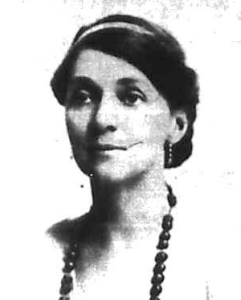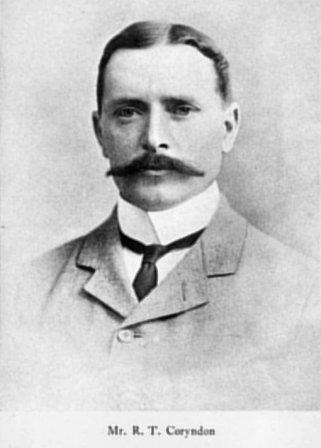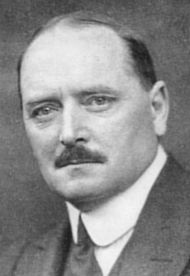Back to search results
Name: CORYNDON, Robert Thorne KCMG, Sir



Birth Date: 2 Apr 1870 Queenstown, South Africa
Death Date: 10 Feb 1925 Nairobi
First Date: 1922
Last Date: 1925
Profession: Governor and Commdr. in Chief, Kenya Colony 1922-25. Transferred from Uganda where he was Governor
Married: In Cheltenham 21 Feb 1909 Phyllis Mary Worthington b. 29 May 1880 Mutford, Suffolk, d. 17 Mar 1961 Nairobi
Children: John (11 Jan 1910 Mbabane, Swaziland-13 May 1942 Zambia, on active service); Roger (16 Apr 1911 S. Africa-13 Nov 1963 Nairobi, Langata cem.); Peter (25 Aug 1913 S. Africa-1998); Honor (19 July 1917 S. Africa)
Book Reference: Permanent Way, Oscar, Police, Debrett, Perkins, Rhodesia, Norden, Lillibullero, White Man, Red 22, Barnes, Nicholls, Mills, Chandler
School: St. Andrew's College, Grahamstown, Cheltenham College
General Information:
Died during the visit of the Duke and Duchess of York. He had been a successful and a very popular Governor.
Permanent Way - The departure of Sir Edward Northey was greatly regretted by the settlers, and at first there was some anxiety lest his successor take a different line in regard to the Indian controversy, which at the time dominated all other political issues. Any fears that existed soon proved groundless. Sir Robert was born in SA and he had spent most of his life as an African administrator. As a young man he had marched with Rhodes' column into Mashonaland, first as a private and later rising to the rank of Major. He fought in the Matabele War of 1893, and later in the Matabele Rebellion so wonderfully ended by Rhodes himself in 1896. At the age of 27 he was appointed Commissioner in Barotseland and, three years later, he became the Administrator of North-Western Rhodesia. Later in Swaziland, in Basutoland and in Uganda, he had acquired a great reputation as a ruler of African peoples. All through his life Sir Robert had drawn his inspiration from Cecil Rhodes. For a time, in the early days, he was Rhodes' private secretary, and he worked with him in London during the enquiry into the ill-advised and ill-fated Jameson Raid. After a lifetime of service in and for Africa, it was inevitable that Sir Robert Coryndon should view the Indian controversy from the viewpoint of the weal of Africa rather than from the advantage of appeasing India. As Governor he had to maintain a public semblance of impartiality, but there were occasions when he disclosed some inkling of his personal opinions. .............. Apart from his rare ability as an African administrator, Sir Robert had a great store of humanism, and the invaluable gifts of reconciling opposition and of translating plan and policy into action.
Police - During the visit of the Duke and Duchess of York the Governor was taken seriously ill at Nairobi and died on February 10th 1925. The Duke of York interrupted his hunting to hasten back to the capital in order to be present at the funeral. Rhodesia - Grogan - excluding Sir Charles Eliot, probably the best of our Governors was Sir Robert Coryndon in that he was a full-blooded man and knew men.
Norden - 1923 - a genial and efficient man; temperamentally of the Roosevelt type ..... Old timers declare him to be the best public servant in the British Colonies.
White Man - Sept 1922 - came down from Uganda to take control ...... was by training an African administrator. He was born in SA and marched with Rhodes' pioneer column when it occupied Mashonaland; he was British resident in Barotseland when he was 27, and administrator of North-western Rhodesia when he was 30. He won a high reputation in Swaziland, Basutoland, and Uganda as a just and progressive Governor. All his active life had been spent in native territories. ........... In Sir Robert Coryndon Kenya had found a rae specimen, a Governor who was popular with everyone. The settlers liked him for his easy unaffected manners and his enthusiasm for the Colony's development. His own officials trusted and respected him. He was tactful not to fight with too much asperity his masters at the Colonial Office. Early in 1925 Sir Robert Coryndon died suddenly, following an operation. His death was a blow to the colony. He had possessed the invaluable gift of reconciling opposing factions and of getting things done.
Nairobi Forest Road cemetery - Lady Phillis May [sic] Coryndon, British, age 81, died 17/3/61 and Sir R.T. Coryndon, British, age 55, died 10/2/25
Nicholls - Northey was succeeded by Sir Robert Coryndon, famous in the past as a hunter, a talented artist and woodworker, a first-class poker player who could tear a pack of cards in half and drink anyone under the table though was generally reasonably abstemious, one of Cecil Rhodes's private secretaries who had become Governor of Uganda and Southern Rhodesia. Coryndon was a good handler of men and won the trust of his officials and the regard of Lord Delamere. ……….. Coryndon liked Africans and urged the complementary development of both African and white production, dreaming of new buildings, new railways, new harbour works. …….. During the visit of the Duke and Duchess of York in 1924 Coryndon was not looking well. Noticing his grey sheen, Dutton asked what was wrong, to be told, 'I believe I am going to have twins.' In fact, he was having trouble with his pancreas. J. Langton Gilks, director of medical services, visited Coryndon in bed one morning but was not unduly alarmed. Dr P.A. Clearkin visited shortly afterwards, was horrified at what he saw and urged immediate admission to hospital. But this was delayed until the evening even though Coryndon was unconscious, because the Chief Justice could not be found to swear in the Acting Governor. Dr H.H.V. Welch, resident surgeon at the European hospital, a drug addict who had been MO at Wajir before the war, operated and found acute haemorrhagic pancreatitis from which Coryndon could not be saved. He died within a few hours and Welch submitted his resignation on health grounds, which was accepted. In fact no surgeon could have saved Coryndon, though Welch later tried to blame his death on the anaesthetic Clearkin had administered, claiming that the Governor's heart could not stand the operation at such a height as Nairobi's.
East Africa Newspaper - 27 November 1924 - 'The gossip writers are turning their attention to Kenya. Almost every settler or official who appears in Who's Who has already been featured once or more as "a possible host of the Duke and Duchess," "another scion of a noble house with a love of the wilds," "a charming Nimrod" or "a social favourite where coffee grows." In most cases the one or two photographs have an exceptional allowance of inaccuracies. Sir Robert Coryndon, of course, comes in for a great deal of mention. His photograph is appearing in dozens of journals. Listen to what the Daily Sketch says of him: "Sir Robert Thorne Coryndon, KCMG, who will be the host of the Duke and Duchess of York during their stay in Nairobi, is as keen a big-game shot as he is an ardent poker-player, and the fact that he can put his 'dooks' up, and his 'sundowners' down with the best, has endeared him to the settlers. "Like the late Bishop of Zanzibar, Sir Robert has been known to administer a sound thrashing with his own hands to a 'hard case' when more official methods were useless. "Kenya could not hope for a Governor with a wider experience of African affairs, for Sir Robert has seen service in Mashonaland, Matabeleland, Barotseland, in Rhodesia, and among the Swazis and basutos. He left Uganda at Kenya's express invitation. The natives call him 'Msungu nyeupe.' The-man-who-is-White-Right-Through." It sounds rather like cruel kindness. And what Swahili!
Gazette 18 Apr 1961 wife's probate
Back to search results



